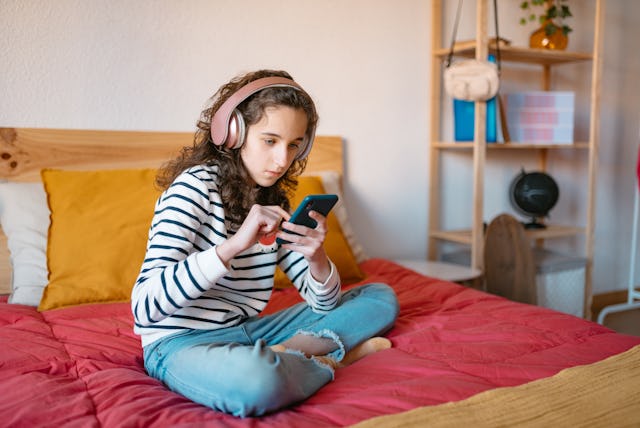TikTok Sets One-Hour Per Day Screen Time Limit For All Users 18 And Under
However, teens can easily turn off the setting in the app.

The research keeps piling up on why social media apps like TikTok and Instagram might be the worst possible thing for young people. Excessive use of the apps has been linked to depression, anxiety, and body image issues in young people.
TikTok and other popular social media apps have been facing a lot of scrutiny lately over their platforms for alarming features like augmented reality face filters that are a bit too uncanny and promoting content on teen’s “For You” pages that promote unhealthy and toxic beauty standards.
The White House has also raised concerns about the app due to its ties to China through parent company Bytedance, including a revived discussion of a possible ban of the short-form video app.
In an attempt to ease some of the heat on their backs, TikTok announced Wednesday that every user under 18 will soon have their accounts default to a one-hour per day screen time limit in hopes to keep kids from mindlessly scrolling for hours.
If the 60-minute limit is reached, users will be prompted to enter a passcode — requiring them to make an active decision to extend their time spent swiping through videos on the app.
TikTok will also send every teen account a weekly recap of their screen time, and it will also prompt teen users who spend more than 100 minutes on the app to set a daily limit.
Though the innovative move seems great in theory, there are sure to be some teenagers wondering how to get around the TikTok time limit feature.
Users can easily turn off the TikTok time limit setting by entering in a passcode when the limit notification pops up.
Though it should be noted that this is a preemptive move to help young social media users and their overconsumption of content by implementing the feature first instead of allowing a teen to opt into the feature instead.
Cormac Keenan — TikTok’s head of trust and safety — said the company consulted researchers and experts from the Digital Wellness Lab at Boston Children’s Hospital when deciding on what would be an appropriate time limit to set for young social media users.
"We believe digital experiences should bring joy and play a positive role in how people express themselves, discover ideas, and connect," Keenan said in a blog post.
“While there’s no collectively-endorsed position on how much screen time is ‘too much’, or even the impact of screen time more broadly, we recognize that teens typically require extra support as they start to explore the online world independently,” he continued.
Even this one small adjustment to social media is a step in the right direction, especially at a time when teens seem to be struggling more than ever.
Teen depression rates are rising at an alarming rate, and a third of teen girls reported considering suicide in 2021. Research also has shown that limiting screen time and social media access can make young people feel better about themselves.
“Every teen is different, and so is every family. That’s why we remain focused on reaching parents with the information they need about TikTok,” the company’s head of trust and safety, Cormac Keenan, said in a statement.
Along with screen time limits and recaps, the company is also introducing an option to mute notifications on a schedule that parents can set.
“We'll continue to invest in improving our current features as well as introducing new tools to help people stay in control as they express their creativity, make meaningful connections, and enjoy culture-defining entertainment,” the blog concluded.
These types of options — though marketed to parents for their children — also seem pretty useful for parents themselves.
Like the moms who find themselves doom-scrolling into the wee hours of the night, participating in some classic revenge bedtime procrastination. A friendly reminder popping up and telling us to get off the damn phone might not be such a bad thing.
This article was originally published on